Network Building
Our Centre establishes networks among communities, groups, and individuals to help transmit and share intangible cultural heritage. This initiative strengthens cooperative networks among NGOs, research institutes, and government organizations regionally and internationally, enabling an orchestrated exchange of information and knowledge about intangible cultural heritage.
-
Sub-regional Meeting for Intangible Cultural Heirtage Safeguarding
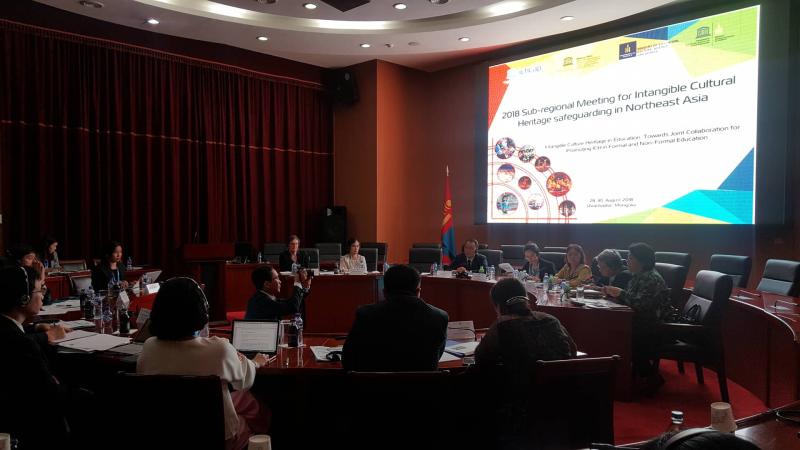 ICHCAP is building networks for ICH safeguarding based on the spirit of coexistence, solidarity, and cultural diversity. It has been crucial for the life of the Centre to nurture a living connection among a wide range of stakeholders including academic institutions, museums, cultural centers, archives, and individual experts. ICHCAP has been holding sub-regional network meetings since 2010, beginning with the Central Asian and Pacific sub-regions and expanding toward Southeast Asia, Northeast Asia, and South Asia. Additionally, ICHCAP has been organizing and sharing information about various ICH stakeholders. Sharing information allows stakeholders to expand their networks and promote creative and productive initiatives for ICH safeguarding. ICHCAP aims toward a bottom-up approach with community leadership.
ICHCAP is building networks for ICH safeguarding based on the spirit of coexistence, solidarity, and cultural diversity. It has been crucial for the life of the Centre to nurture a living connection among a wide range of stakeholders including academic institutions, museums, cultural centers, archives, and individual experts. ICHCAP has been holding sub-regional network meetings since 2010, beginning with the Central Asian and Pacific sub-regions and expanding toward Southeast Asia, Northeast Asia, and South Asia. Additionally, ICHCAP has been organizing and sharing information about various ICH stakeholders. Sharing information allows stakeholders to expand their networks and promote creative and productive initiatives for ICH safeguarding. ICHCAP aims toward a bottom-up approach with community leadership. -
Expert Meeting for Building Network on ICH
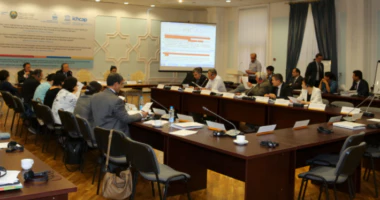 Communities have a fundamental role in the continuous protection and safeguarding of ICH, specifically in the areas of transmission and sustainable practice. As recognized by UNESCO 2003 Convention, communities are central in maintaining the vitality and sustainability of living heritage. Furthermore, the Convention emphasizes community participation in identifying and defining ICH elements. NGOs are also recognized as critical actors for successful heritage safeguarding and interaction with communities. UNESCO-accredited NGOs are perceived to be competent in the ICH field to act in an advisory capacity to the Intergovernmental Committee. NGOs communicate with communities at the grassroots level, where government resources often fail to extend. They act as important intermediaries between governments and communities to advocate increased community interests. Thus, building networks with NGOs strengthens engagement with communities and contributes to establishing ICH safeguarding schemes based on community needs. In this regard, ICHCAP builds the foundations of networks for community-related NGOs in the Asia-Pacific region to strengthen ICH transmission.
Communities have a fundamental role in the continuous protection and safeguarding of ICH, specifically in the areas of transmission and sustainable practice. As recognized by UNESCO 2003 Convention, communities are central in maintaining the vitality and sustainability of living heritage. Furthermore, the Convention emphasizes community participation in identifying and defining ICH elements. NGOs are also recognized as critical actors for successful heritage safeguarding and interaction with communities. UNESCO-accredited NGOs are perceived to be competent in the ICH field to act in an advisory capacity to the Intergovernmental Committee. NGOs communicate with communities at the grassroots level, where government resources often fail to extend. They act as important intermediaries between governments and communities to advocate increased community interests. Thus, building networks with NGOs strengthens engagement with communities and contributes to establishing ICH safeguarding schemes based on community needs. In this regard, ICHCAP builds the foundations of networks for community-related NGOs in the Asia-Pacific region to strengthen ICH transmission. -
Establishing ICH Networks among Educational Institutes
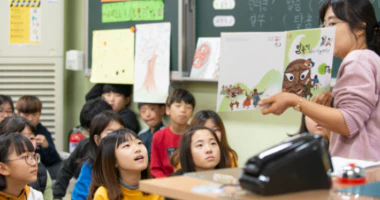 As a vital element in human existence, living heritage is passed down. Over the years, the education sector has been viewed as a key factor in enabling an environment for transmission. The UNESCO 2003 Convention and Operational Directives for the Implementation of the Convention for the Safeguarding of the Intangible Cultural Heritage note the importance of education for ICH safeguarding. This is highlighted in the adoption of ‘Safeguarding intangible cultural heritage in formal and non-formal education’ as a new funding priority at the twelfth session of the Intergovernmental Committee for the Safeguarding of the Intangible Cultural Heritage in December 2017. The overall results framework for the Convention also emphasizes the importance of education in implementing the Convention through the thematic area of ‘Transmission and education’. In line with UNESCO’s strategy to pursue an integrated approach to ICH and education, ICHCAP works with national and international educational institutions and research institutes to carry out education and training projects for the future generation. These activities will engender an important foundation for a systematic ICH safeguarding and transmission by expanding the role of educational institutions as strategic partners to implement the Convention.
As a vital element in human existence, living heritage is passed down. Over the years, the education sector has been viewed as a key factor in enabling an environment for transmission. The UNESCO 2003 Convention and Operational Directives for the Implementation of the Convention for the Safeguarding of the Intangible Cultural Heritage note the importance of education for ICH safeguarding. This is highlighted in the adoption of ‘Safeguarding intangible cultural heritage in formal and non-formal education’ as a new funding priority at the twelfth session of the Intergovernmental Committee for the Safeguarding of the Intangible Cultural Heritage in December 2017. The overall results framework for the Convention also emphasizes the importance of education in implementing the Convention through the thematic area of ‘Transmission and education’. In line with UNESCO’s strategy to pursue an integrated approach to ICH and education, ICHCAP works with national and international educational institutions and research institutes to carry out education and training projects for the future generation. These activities will engender an important foundation for a systematic ICH safeguarding and transmission by expanding the role of educational institutions as strategic partners to implement the Convention. -
Interpersonal Exchange Programs in the ICH field
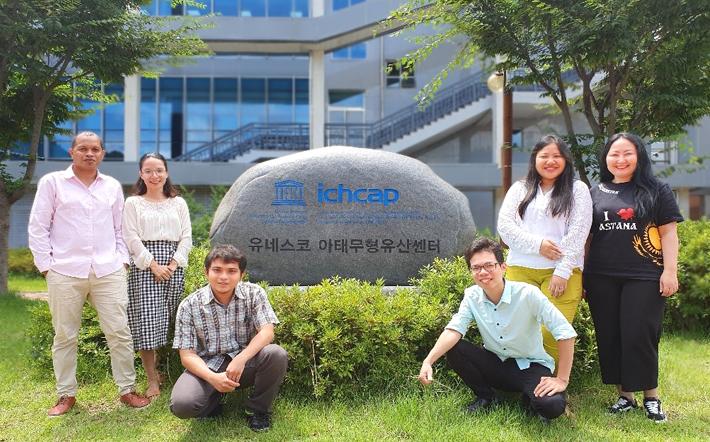 ICHCAP has been running Cultural Partnership Initiative and Associate Expert Program to enlarge ICH experts’ network in the Asia-Pacific region. We have since developed a mutually beneficial working relationship and cooperation with affiliate organizations. With the support of the Centre, invited young professionals conduct individual research in the ICH field. They also participate in ICHCAP’s relevant projects to build scholarly capacity and practical learning experiences in the ICH field.
ICHCAP has been running Cultural Partnership Initiative and Associate Expert Program to enlarge ICH experts’ network in the Asia-Pacific region. We have since developed a mutually beneficial working relationship and cooperation with affiliate organizations. With the support of the Centre, invited young professionals conduct individual research in the ICH field. They also participate in ICHCAP’s relevant projects to build scholarly capacity and practical learning experiences in the ICH field. -
World Foum for Intangible Cultural Heritage
 The National Intangible Heritage Center (NIHC) and ICHCAP have co-organize the World forum for Intangible Cultural Heritage since 2019 to shape and lead global discourse on ICH and its safeguarding. By introducing various topics; (2019) Civic life, (2020) Human and nature, (2021) Convergence and creativity, (2022) Traditional knowledge, (2023) The 20th anniversary of the 2003 Convention, (2024) Migration: Broadening the Horizon of Intangible Cultural Heritage; ICHCAP and NIHC provide the venue for ICH relate experts, students, NGOs and communities to exchanges their expertise and strength the network. Meanwhile, we also make an effort to examine in depth the value that ICH contributes to the sustainable development of humanity and explore the achievements and future challenges that the Forum has contributed to the safeguarding of intangible heritage.
The National Intangible Heritage Center (NIHC) and ICHCAP have co-organize the World forum for Intangible Cultural Heritage since 2019 to shape and lead global discourse on ICH and its safeguarding. By introducing various topics; (2019) Civic life, (2020) Human and nature, (2021) Convergence and creativity, (2022) Traditional knowledge, (2023) The 20th anniversary of the 2003 Convention, (2024) Migration: Broadening the Horizon of Intangible Cultural Heritage; ICHCAP and NIHC provide the venue for ICH relate experts, students, NGOs and communities to exchanges their expertise and strength the network. Meanwhile, we also make an effort to examine in depth the value that ICH contributes to the sustainable development of humanity and explore the achievements and future challenges that the Forum has contributed to the safeguarding of intangible heritage. -
Silk Roads Living Heritage Network (SRLHN)
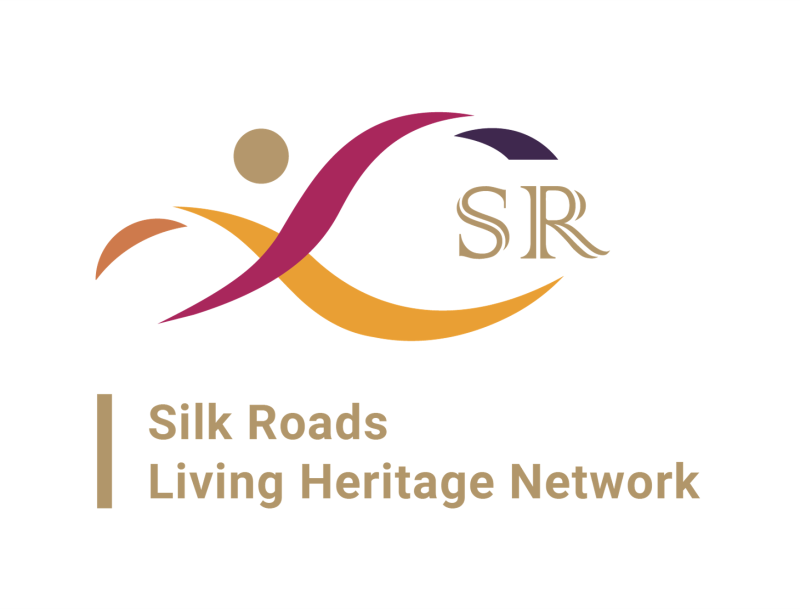 Safeguarding and Promoting ICH in Silk RoadsSilk Roads Living Heritage Network (SRLHN) preserves and promotes the living heritage of Central Asia, West Asia, and the Republic of Korea along the Silk Roads. The Network’s legitimacy is based on the UNESCO 2003 Convention for the Safeguarding of the Intangible Cultural Heritage and the UNESCO Silk Roads Program. The official inauguration of the Network took place in October 2021. The Coordinating Bureau members were nominated by the UNESCO National Commissions of nine founding member states (Azerbaijan, Iran, Kazakhstan, Kyrgyzstan, Mongolia, Republic of Korea, Tajikistan, Turkiye, and Uzbekistan). In addition to ICHCAP and International Institute for Central Asian Studies (IICAS), a new partnership has been established with the International Centre for ary Heritage under the auspices of UNESCO (ICDH) and Busan Foundation for International cooperation (BFIC) in 2022. Overall, the Network aims to promote the value of ICH and contribute to the economic development of communities through strategic activities such as co-organizing ICH festivals, promoting sustainable tourism, and cooperating on shared cultural heritage in the Silk Roads.
Safeguarding and Promoting ICH in Silk RoadsSilk Roads Living Heritage Network (SRLHN) preserves and promotes the living heritage of Central Asia, West Asia, and the Republic of Korea along the Silk Roads. The Network’s legitimacy is based on the UNESCO 2003 Convention for the Safeguarding of the Intangible Cultural Heritage and the UNESCO Silk Roads Program. The official inauguration of the Network took place in October 2021. The Coordinating Bureau members were nominated by the UNESCO National Commissions of nine founding member states (Azerbaijan, Iran, Kazakhstan, Kyrgyzstan, Mongolia, Republic of Korea, Tajikistan, Turkiye, and Uzbekistan). In addition to ICHCAP and International Institute for Central Asian Studies (IICAS), a new partnership has been established with the International Centre for ary Heritage under the auspices of UNESCO (ICDH) and Busan Foundation for International cooperation (BFIC) in 2022. Overall, the Network aims to promote the value of ICH and contribute to the economic development of communities through strategic activities such as co-organizing ICH festivals, promoting sustainable tourism, and cooperating on shared cultural heritage in the Silk Roads.
QUICK MENU
QUICK MENU 원하시는 서비스를 클릭하세요!
There is no registered quick menu.